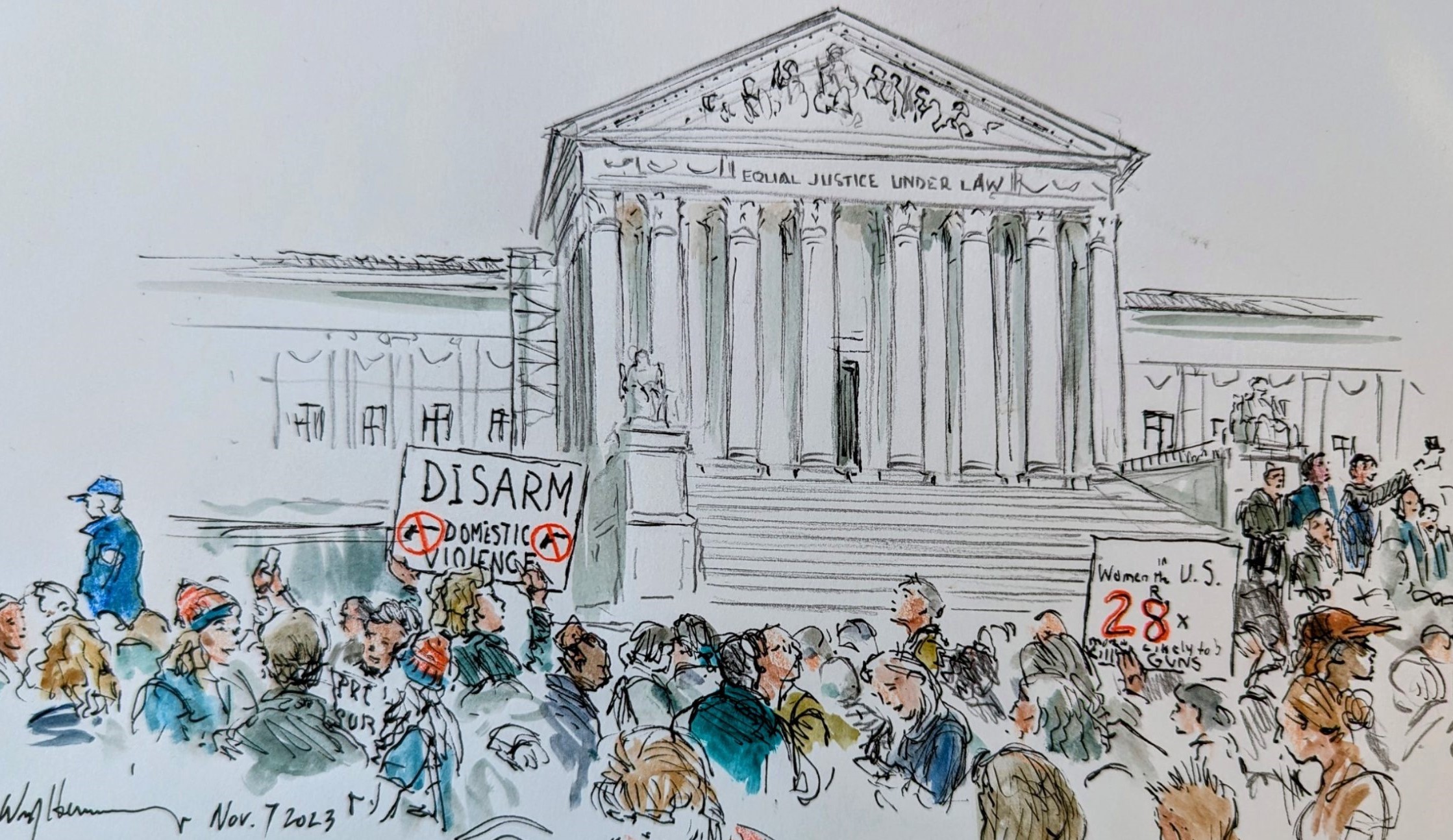SCOTUS Hears Argument on Domestic Violence Gun Ban
 Earlier this week, SCOTUS heard oral arguments on a case involving a federal law that disqualifies individuals under a domestic protective order from possessing firearms. The majority of the justices seemed reluctant to strike down the federal law.
Earlier this week, SCOTUS heard oral arguments on a case involving a federal law that disqualifies individuals under a domestic protective order from possessing firearms. The majority of the justices seemed reluctant to strike down the federal law.
We have tracked this case since SCOTUS granted certiorari on the last day of its term back in June. The case will have huge implications for our nation's second amendment jurisprudence.
Texan Zackey Rahimi came within the injunctive powers of the federal law, 18 USC 922(g)(8), when he assaulted his then girlfriend with whom he has a minor child. Rahimi was also a suspect in several shootings. When local law enforcement searched his home, they found weapons resulting in his charges under the above-referenced federal gun ban.
Rahimi challenged the constitutionality of the federal law pursuant to the SCOTUS holding in New York Rifle and Pistol Assn v Bruen; the most recent seminal second amendment case. The Bruen Court ruled that gun restrictions should only be upheld when there is a "tradition of such regulations" in our nation's history; a "well-established and representative analogue" to the challenged law.
Even the conservative justices seemed to acknowledge that domestic violence is dangerous and places its victims in the path of injury or death. During the argument, however, the conservative justices, Roberts and Coney Barrett in particular, inquired about the degrees of dangerous conduct and fretted about how to parse certain conduct.
For her part, Solicitor General Elizabeth Prelogar asserted the basic concept that the challenged federal statute was a "clear application" of the principle "that you can disarm dangerous people." Seems simple enough to us over here at Clarkston Legal.
Rahimi's lawyer faced a tough reception from the justices; he had a tough client to represent. Justice Roberts asked him: "you don't have any doubt that your client is a dangerous person, do you?" Someone that, no doubt, is ineligible to possess a firearm.
The discourse touched on certain categories of citizens that are ineligible to possess weapons: convicted felons, mentally ill persons, and persons possessing weapons with their serial numbers removed, among others. The central issue in the case is whether persons subject to domestic violence injunctive orders should be included in the list of disqualified individuals.
Michigan's Governor Whitmer is expected to sign a state bill into law that mirrors 18 USC 922(g)(8); the challenged federal law in Rahimi, on the very day of oral arguments in Washington DC. The Michigan law disqualifies any person convicted of "a misdemeanor involving domestic violence"; the disqualification lasts for 8-years from the successfully completed term of incarceration or probation.
This new law ties into the recently enacted package of "red flag" gun laws here in Michigan. One of the components of this package is the Extreme Risk Protection Order Act.
This act, signed by the governor in May, allows specified individuals (a spouse or someone with whom a person shares a child) to file an civil action requesting a circuit court to file an Extreme Risk Protection Order. If the court determines that such an order is necessary -because the individual is determined to pose a risk to himself or others through the possession of a weapon- issuance of the ERPO would prohibit the individual from the possession of a firearm.
There has been much speculation here in Michigan that, like the federal domestic violence gun ban, this law will be subjected to immediate constitutional scrutiny. Some counties have already indicated their unwillingness to enforce this new law.
The legislative intent behind both the federal and state law gun bans is the prevention of domestic violence. Studies used to pass the laws indicate that victims of domestic violence suffer much greater harm, including death, when the perpetrator possesses a weapon.
Here is a link to our initial post on this seminal SCOTUS case; here is a link to a follow-up post about the plethora of amicus briefs filed in the case.
If you have questions about your eligibility to possess a firearm, contact our law firm to discuss your options during a free consultation.

